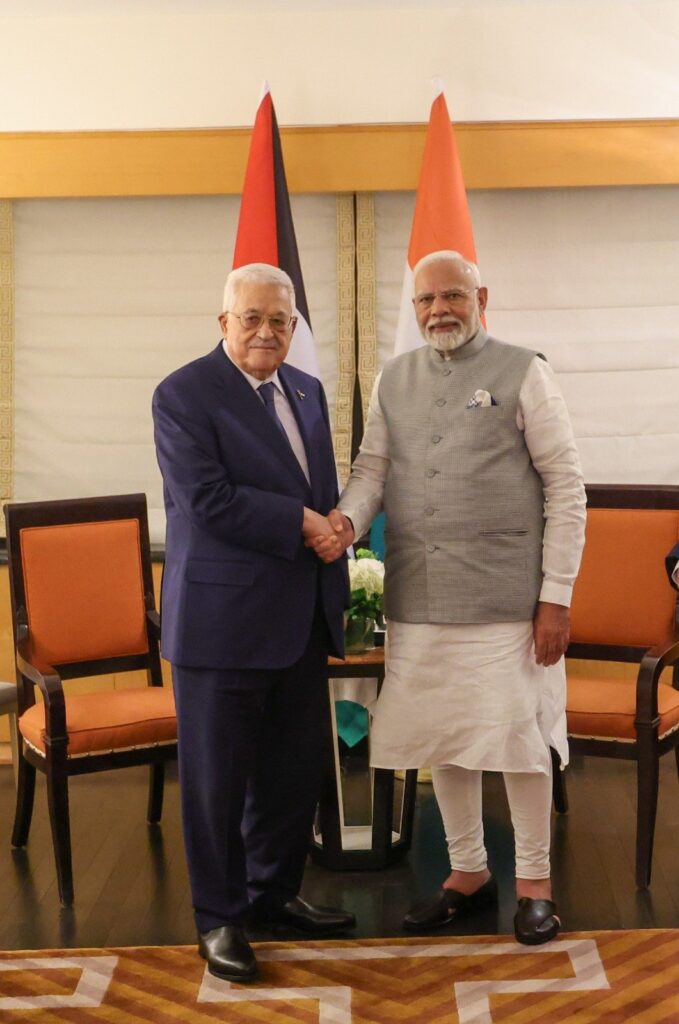India Reaffirms Support for Palestine, Calls for Two-State Solution

Pic Source : X post from @narendramodi
Prime Minister Narendra Modi met with Palestinian President Mahmoud Abbas on September 22, 2024, in New York, reaffirming India’s steadfast support for the Palestinian people. This meeting on the sidelines of the Summit of the Future underscored India’s commitment to peace and stability in the region.
PM Modi expressed deep concern over the humanitarian crisis in Gaza and the deteriorating security situation, advocating for a ceasefire, hostage release, and a return to dialogue and diplomacy. He emphasized that a two-state solution is the only path to lasting peace and stability. India, one of the first countries to recognize Palestine, continues to support Palestine’s membership in the United Nations.

The leaders engaged in constructive discussions on India-Palestine bilateral relations, including India’s support at the United Nations, and ongoing assistance in education, health, and capacity building. Both nations reaffirmed their commitment to strengthening ties.
India’s historical support for Palestine dates back to 1974, with diplomatic relations established in 1980. India has consistently backed Palestine’s right to self-determination and statehood. In 2012, India co-sponsored the UNGA resolution upgrading Palestine’s observer status to a non-member observer state.
The meeting between PM Modi and President Abbas reinforces India’s long-standing position on the Israel-Palestine issue, balancing its relations with both nations while promoting peace and stability in the region. India’s continued support for Palestine reflects its commitment to justice, equality, and human rights.
The bilateral talks also highlighted the potential for increased cooperation between India and Palestine in various sectors, further solidifying their strategic partnership. As the international community continues to seek lasting solutions to the Middle East conflict, India’s role as a key player in promoting peace and stability remains crucial.







